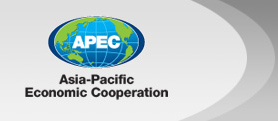APEC economy: Canada; Jurisdiction: Prince Edward Island
Temporary practice ('fly-in, fly-out' practice)
There is no express rule allowing temporary practice by foreign lawyers.
Limited licensing of foreign lawyers (foreign legal consultant rules)
A foreign lawyer can obtain a limited licence entitling them to offer advisory services in foreign and international law (ie become a foreign legal consultant).
The relevant legislation are the Regulations of the Law Society of Prince Edward Island - Regulation 21.12, and the Legal Profession Act.
Details of the requirements for qualifying for a limited licence and what a limited licence entitles a foreign lawyer to do are included in the database. An applicant who wishes to practise as a foreign legal consultant in Prince Edward Island must meet the following conditions:
- be a member in good standing of the legal profession of his or her home country or one of its internal jurisdictions;
- be a person of good moral character and a fit and proper person to practise as a foreign legal consultant in the Province;
- have practised the law of his or her home country or one of its internal jurisdictions for at least three complete years, or undertakes in writing to work, while acting as a foreign legal consultant in the Province, only under the direct supervision of a foreign legal consultant from that country or internal jurisdiction who has satisfied the three-year practice requirement;
- provide to the Council a written undertaking that he or she will not handle trust funds, will submit to the jurisdiction of the Society, and will comply with the Act, the Regulations and the Code of Professional Conduct and will notify the Council of certain other events.
As to form of practice requirements, foreign legal consultants may only practise the law of their home jurisdiction, and are prohibited from handling trust moneys.
In order to offer advisory services in foreign and international law, a foreign legal consultant is not required to but may enter a commercial association with local lawyers.
As at June 2009, no limited licences had been granted to foreign lawyers in this jurisdiction.
Full licensing
A foreign lawyer can obtain a full licence to practise law in this jurisdiction.
The relevantlegislation is the Legal Profession Act and the Regulations of the Law Society of Prince Edward Island.
In order to obtain a full licence to practise law in this jurisdiction, foreign lawyers must apply to the National Committee on Accreditation, in the same manner as for other Canadian jurisdictions. These requirements are different from the rules applicable to a local applicant in that local applicants with a Canadian common law degree may apply directly to the Law Society.
As at June 2009, no full licences had been granted to foreign lawyers in this jurisdiction.
Commercial association between lawyers and law firms
In this jurisdiction:
- local lawyers may be employed by another local lawyer of a local firm;
- foreign lawyers may provide services in some other form of commercial association with local lawyers;
- foreign firms are permitted to establish a commercial presence (a permanent office) to offer advisory services in foreign and international law;
- foreign firms are permitted to enter into commercial association with local lawyers or law firms.
Other regulatory issues
In this jurisdiction:
- there are specific rules in relation to advertising. These rules are included in Regulation 38 (see database for details);
- there are specific rules in relation to use of names by lawyers or law firms. Rule 41.1 provides that lawyers should not hold themselves out as being members of the firm which has as a part of the firm name the words 'and Company', 'and Co' or 'and Associates' unless in fact the firm has lawyers other than those shown in the firm name. It is improper to include the name of a judge as being a predecessor or former member of the firm. Lawyers are not permitted to use their firm letterhead in canvassing for charitable or political funds unless the canvass is directed only to the members of the profession and members of the Bench. A firm may include the name of a deceased or retired member so long as the letterhead indicates through some manner that the deceased partner is no longer living or the retired member is retired. A lawyer or firm shall not use the firm letterhead which lists a living person not authorised to practise law in Prince Edward Island unless that person is retired from active engagement in the profession.
Foreign lawyers and firms are treated differently from local lawyers in the application of these rules, in that foreign legal consultants must use the term 'foreign legal consultant' in advertising, state the foreign jurisdiction in respect of which he or she is qualified to practise law and the professional title used in that jurisdiction, and state that he or she is not a member of the Law Society.
Contacts
| Category | Name | Website or other contact details |
|---|---|---|
| Organisation(s) that controls licensing of lawyers | The Law Society of Prince Edward Island | www.lspei.pe.ca |
| Peak professional association representing the legal profession | The Canadian Bar Association - Prince Edward Island Branch | www.cba.org/pei/main/home |
| Other associations playing a significant role in developing policy for the legal profession | Federation of Law Societies of Canada | www.flsc.ca |
Other issues
In Canada, regulation of the legal profession is the exclusive responsibility of the Provincial and Territorial Law Societies. Law Societies are mandated by provincial law and territorial legislation to regulate the profession in the public interest. This includes setting rules governing admission to the profession. As such, the regulation of foreign lawyers who wish to practise in Canada is governed by the rules of the individual Law Societies. Law Societies are not representatives of, or advocates for, the profession. That role is fulfilled by organisations such as the Canadian Bar Association and its branches.
